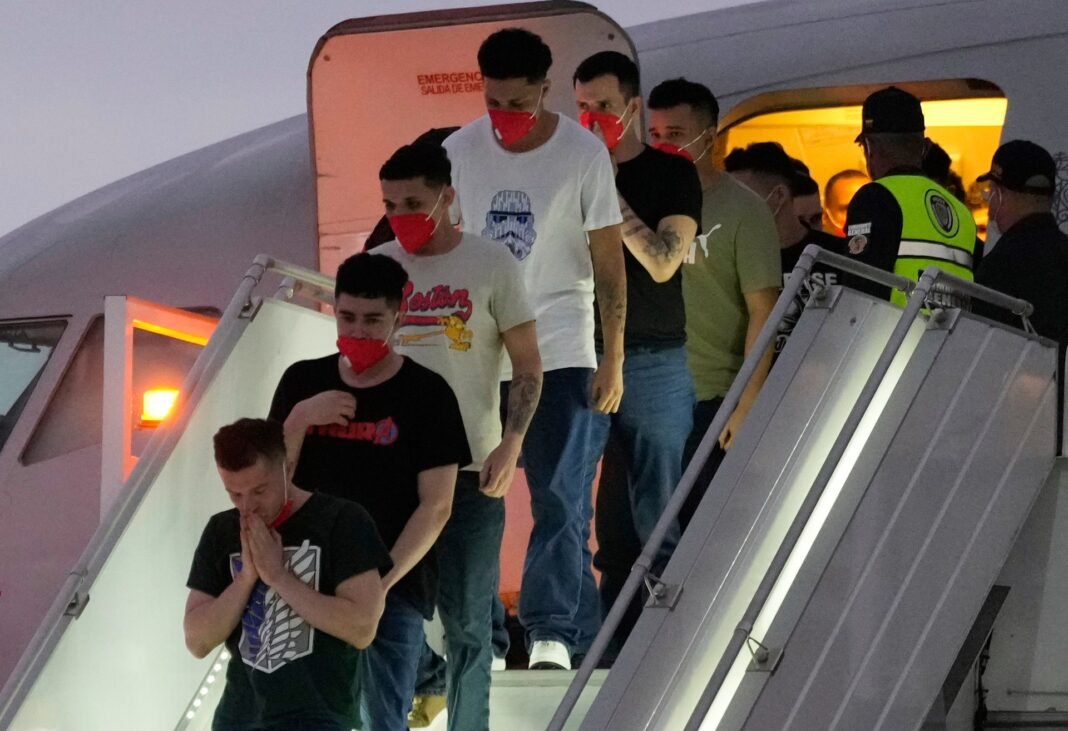Appeals Court Reverses Contempt Rulings Against Trump-Era Immigration Officials
Judicial Limits on Executive Deportation Actions Under Scrutiny
A federal appellate court has overturned a lower court’s contempt ruling against officials from the Trump administration related to early deportations conducted under the Alien Enemies Act. This reversal represents a significant judicial setback for efforts challenging immigration enforcement policies implemented during President Donald Trump’s term.
Disagreement Among Judges on Separation of Powers
The three-judge panel was split, with two judges appointed by President Trump-Gregory Katsas and Neomi Rao-forming the majority, while Obama appointee Cornelia Pillard dissented. the majority concluded that the district court had overstepped its authority by attempting to hold executive branch officials in contempt for actions tied to foreign policy and immigration enforcement.
Judicial Restraint in Foreign Affairs Decisions
Judge Rao underscored that courts traditionally exercise minimal control over executive decisions involving foreign relations. She remarked,“The district court’s order intrudes upon the Executive Branch’s conduct of foreign affairs,an area where judicial power is at its weakest.”
Dissenting Viewpoint: Safeguarding Judicial Oversight
In contrast, Judge Pillard cautioned that this ruling risks eroding judicial checks on executive power. She criticized her colleagues for dismissing attempts to enforce legal accountability within government operations.
the Legal Dispute Over Deportations Using Wartime Statutes
The conflict originated when U.S.District judge James Boasberg issued an injunction halting deportations of Venezuelan nationals suspected of gang involvement under the seldom-invoked Alien Enemies act-a wartime law permitting expedited removal of certain foreign nationals deemed threats to national security.
This statute had historically been reserved for declared wartime conditions but was repurposed during Trump’s administration as part of a stringent immigration crackdown.Despite boasberg’s order stopping deportation flights-including those already airborne-two planes carrying roughly 250 individuals landed in El Salvador shortly after his injunction was issued.
Government Challenges and Flight Diversion Issues
The administration cited logistical challenges preventing mid-flight rerouting and questioned whether verbal orders from Judge Boasberg carried binding legal force. President Trump publicly condemned Boasberg via social media calls for impeachment amid escalating tensions between branches of government.
Criminal Contempt Charges considered Amid Alleged Defiance
In April,Judge Boasberg found indications that government officials willfully disregarded his orders and identified probable cause to pursue criminal contempt charges-a serious accusation potentially resulting in fines or imprisonment if proven true.
the judge emphasized these findings were reached only after multiple opportunities were given for compliance or clarification but defendants failed to provide adequate justification.
Navigating Executive authority Versus Judicial Control
The Department of Justice argued that Boasberg’s rulings infringed upon presidential powers. Concurrently, higher courts partially eased restrictions on applying the Alien Enemies Act but maintained safeguards requiring detainees be notified and allowed chances to contest their removals before deportation proceeds.
Divergent Opinions Highlight Complexities Within Appeals Court Ruling
- Katsas’ Majority Viewpoint: He expressed concern about courts interfering with core executive functions such as conducting foreign policy or prosecuting crimes abroad. Drawing parallels with a 1970s Supreme Court case blocking attempts to halt bombing missions mid-operation-which was quickly stayed-he deemed any order forcing planes back mid-flight impractical.
- Pillard’s Dissenting Argument: She distinguished between military actions during wartime versus peacetime immigration enforcement; noting many detainees lacked formal criminal charges yet faced transfer overseas where human rights abuses have been documented.
“Federal district courts possess recognized authority to temporarily restrain government officials from transferring presumptively noncriminal detainees without due process,” Pillard wrote in dissent.
Tensions Rise Amid Accusations Targeting Judiciary Members
This appeals decision coincided with reports that the Department of Justice filed misconduct complaints against Judge Boasberg following his critical remarks about how Trump’s policies challenged judicial independence-a move widely viewed as politically motivated retaliation reflecting increasing politicization within institutions overseeing immigration cases nationwide.
A Wider Lens: Contemporary Immigration Enforcement Challenges
This case exemplifies ongoing clashes between governmental branches over implementing immigration policies amid evolving national security concerns; recent statistics reveal U.S. Customs and Border Protection apprehended more than 1.7 million migrants along southern borders during fiscal year 2024-a historic peak fueling debates over balancing lawful procedures against administrative urgency when enforcing statutes like the Alien Enemies Act.





